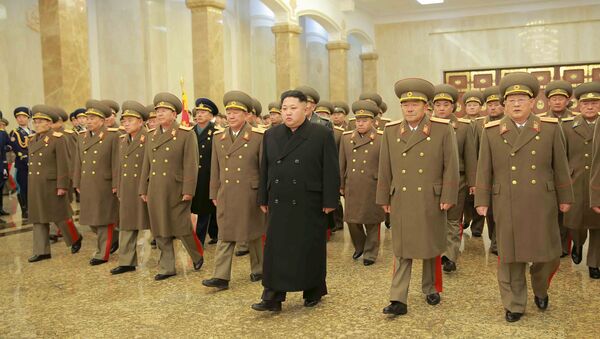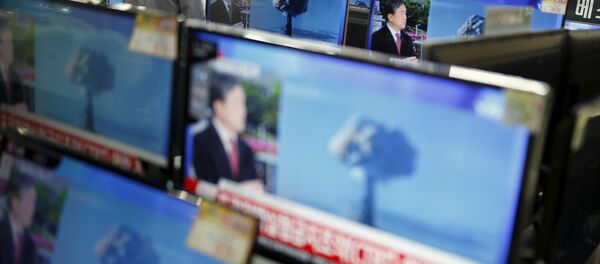Relations between the two countries have further deteriorated after Pyongyang claimed it had carried out a hydrogen bomb test. Then, earlier today Yonhap news agency reported that South Korean military had fired warning shots at a North Korean drone flying near the border between the two countries.
However, despite the current row, the crisis won't escalate into war, because neither Seoul nor Pyongyang want a dramatic change in the Korean Peninsula.
"I think both sides understand and know rules. No one wants a radical change in the status quo right now," McAdams told Radio Sputnik.
South Korea wants to avoid a major war with its northern neighbor, because a large military conflict might lead to a massive influx of impoverished North Koreans. China might have the same fate, as some North Koreans would run across to their country as refugee in the event of war, McAdams said.
The United States is also not interested in a military conflict, as Washington might lose as many as 200,000 US soldiers if guns start blazing on the Korean peninsula, according to a latest US war-modeling study, McAdams said.
As for North Korea, its leaders don't want a confrontation either. Despite what Western media has said about Kim Jong Un, the North Korean leader has a wise foreign policy for the poor state of his country.
"He [Kim] is actually acting in a very rational manner… He sees threats around him and he adopts policies to deter attacks on his country," McAdams told Sputnik.
Kim Jong Un does not seek regime changes overseas and he does not invade other countries, he simply tries to deter other countries, including the United States and South Korea, from invading his country.
"It's ironic to say, but North Korean foreign policy is more rational than US foreign policy," McAdams told Sputnik.



